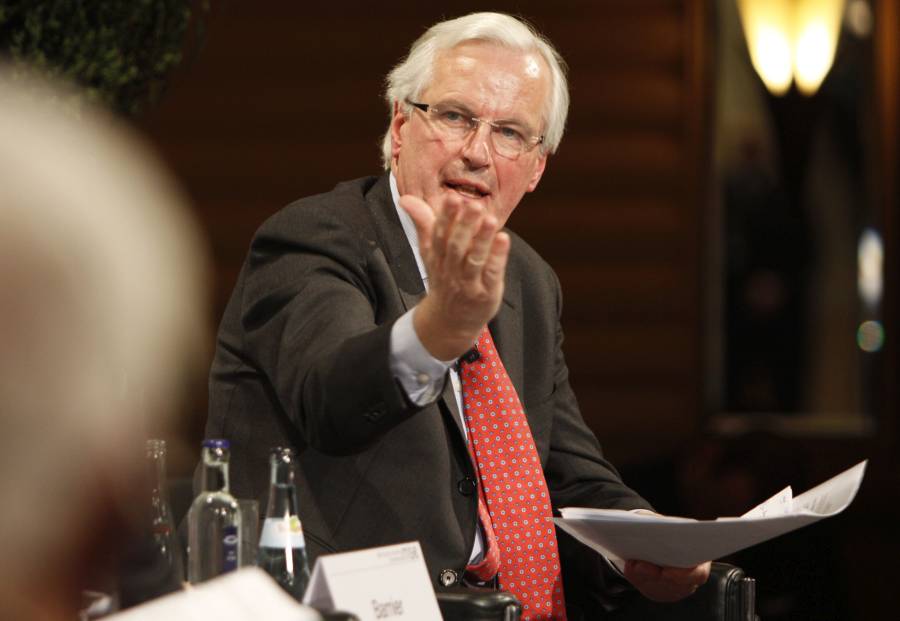
The UK must not ditch European standards or "red tape", such as food safety and animal welfare, if a free trade agreement were to be signed by the UK and EU.
The EU's chief negotiator Michael Barnier has said the bloc is "ready" to offer Britain an "ambitious" free trade deal.
But Mr Barnier said there has to be a "level playing field" with the EU, and the Government must not ditch European standards, such as those currently in place for food safety standards and animal welfare.
He warned there would be no “cherry picking” of the elements of the single market Britain wanted to keep.
Speaking in Brussels at a Centre for European Reform conference on Monday (20 November), Mr Barnier said: “There will be no ambitious partnership without common ground on fair competition, state aid, tax-dumping, food safety, social and environmental standards.
"If we manage to negotiate an orderly withdrawal, fully respecting the integrity of the single market and establishing a level playing field, there is every reason for our future partnership to be ambitious. This is our preferred option."
"This is why we have started internal preparations with member states, to be ready to talk about the future as soon as we will have agreed on how to settle the past.
"The EU will, of course, be ready to offer its most ambitious FTA (free trade agreement) approach."
British MPs have already "cherry-picked" with animal welfare law. Parliament voted to reject the inclusion of animal sentience into the EU (Withdrawal) Bill last week, with one group saying the move undermines Michael Gove's high animal welfare pledge.
Eighty percent of current animal welfare legislation comes from the EU, but after March 2019, European law will no longer apply in the UK.
While most EU law relating to animals will be automatically brought over into UK law, this will not apply to the recognition of sentience.
Difficult trade talks
The Government has made clear that it is seeking to establish a series of free trade agreements with countries around the world ready for when the UK withdraws from the European Union in 2019.
However, a briefing paper in the House of Commons Library, has warned that agriculture can prove difficult in trade talks.
The authors of the document, 'Brexit: Agriculture and Trade,' said: "Agricultural issues can be a sticking point in trade negotiations. The interests of consumers and producers need to be balanced.
"Other issues, such as food security, differing approaches to ensuring food safety, animal welfare and environmental standards, are also likely to come into the equation. Agricultural interests may also have to be balanced against those of other industrial sectors."
The paper said: "On leaving the EU customs union, the UK will be able to negotiate its own free trade agreements. This has the potential to open up new markets for UK agriculture."
However, it said: "It remains to be seen how easy these trade negotiations will be. Examples have already been raised where there could be issues such as around the import of hormone-fed beef and chickens washed in chlorine, which are currently banned in the EU."
